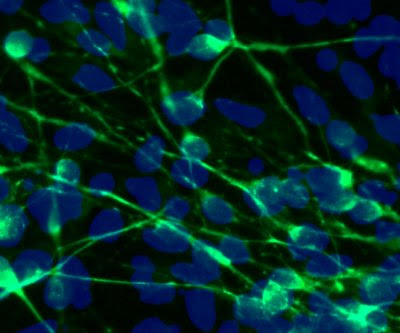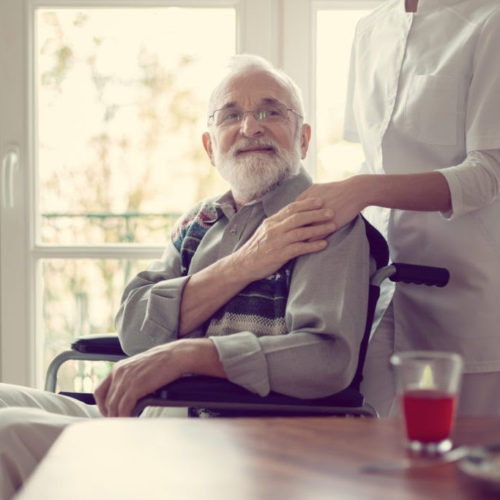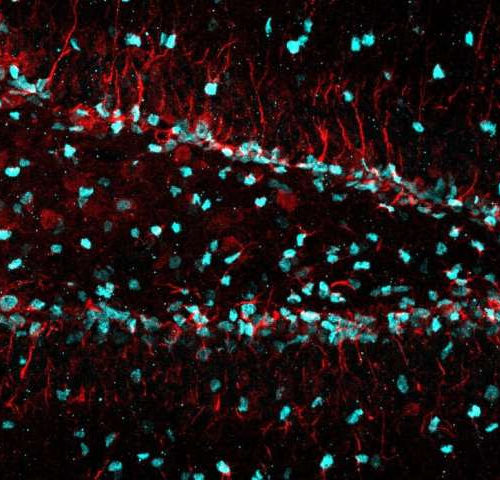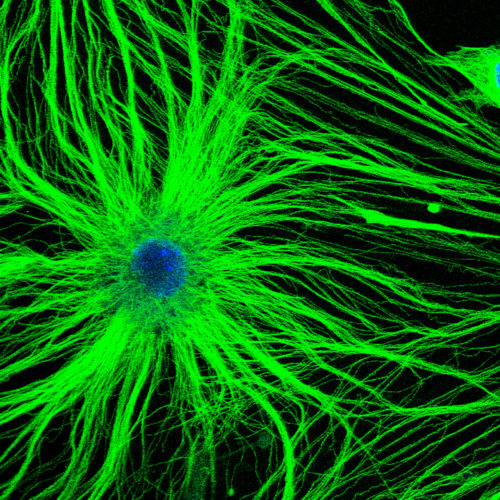UNIVERSITY OF ILLINOIS COLLEGE OF AGRICULTURAL, CONSUMER AND ENVIRONMENTAL SCIENCES URBANA, Ill. – You know that feeling in your gut? We think of it as an innate intuition that sparks deep in the belly and helps guide our actions, if we let it. It’s also a metaphor for what scientists call the “gut-brain axis,” a...
Tag: <span>Neurons</span>
Altered potassium levels in neurons may cause mood swings in bipolar disorder
Salk researchers also find additional differences between the neurons of people with bipolar disorder who respond to lithium and those who don’t People with bipolar disorder experience dramatic shifts in mood, oscillating between often debilitating periods of mania and depression. While a third of people with bipolar disorder can be successfully treated with the drug...
Scientists find new way to save neurons in Alzheimer’s disease
Neurons die earlier than experts previously thought in Alzheimer’s disease, and stopping the process could prevent the disease from ever developing, finds a new study from Tokyo Medical and Dental University in Japan. Research brings a new understanding of how Alzheimer’s disease develops. Alzheimer’s disease is the leading cause of dementia, and as many as...
Newly identified cellular trash removal program helps create new neurons
by Eric Hamilton, University of Wisconsin-Madison New research by University of Wisconsin-Madison scientists reveals how a cellular filament helps neural stem cells clear damaged and clumped proteins, an important step in eventually producing new neurons. The work provides a new cellular target for interventions that could boost neuron production when it’s needed most, such as...
Glial Brain Cells, Long in Neurons’ Shadow, Reveal Hidden Powers
The glial cells of the nervous system have been eclipsed in importance by neurons for decades. But glia are turning out to be central to many neurological functions, including pain perception. The sting of a paper cut or the throb of a dog bite is perceived through the skin, where cells react to mechanical forces and send...
Neurodegenerative diseases may be caused by transportation failures inside neurons
by Katherine Fenz, Rockefeller University All neurodegenerative diseases have a common thread: the appearance of protein clumps in the brain such as amyloid-beta plaques in Alzheimer’s disease and alpha synuclein aggregates in Parkinson’s. The root cause of this buildup has been hard to pinpoint, but Rockefeller scientists have identified a likely culprit that opens up...
Longevity Linked to Proteins That Calm Overexcited Neurons
New research makes a molecular connection between the brain and aging — and shows that overactive neurons can shorten life span. Athousand seemingly insignificant things change as an organism ages. Beyond the obvious signs like graying hair and memory problems are myriad shifts both subtler and more consequential: Metabolic processes run less smoothly; neurons respond less...
Novel agent flips on garbage disposal in neurons, eliminating toxic brain proteins in mice
by Georgetown University Medical Center Neuroscientists at Georgetown University Medical Center say they have developed and tested an agent that reduces the buildup of toxic proteins in animal models of both Parkinson’s and Alzheimer’s diseases, and improves cognitive and motor behavior. The team will present their findings about the agent, CM101 (also known as BK40143),...
Synchronized or independent neurons: This is how the brain encodes information
by International School of Advanced Studies (SISSA) “Like a book in which the single pages are not all different but carry small portions of common text, or like a group of people who whistle a very similar tune”: this is how our brain cells work, say scientists. It is the phenomenon of “co-relation,” in which...
Biobots made from muscle propelled by neurons and light
By Nick Lavars Tiny, soft robots that can safely navigate biological settings like the human body could mean big things for medical treatment, but moving them through these environments is much easier said than done. Scientists at the University of Illinois have come up with a promising new possibility, describing biohybrid robots that can be...





